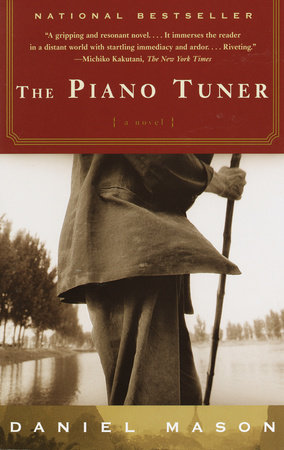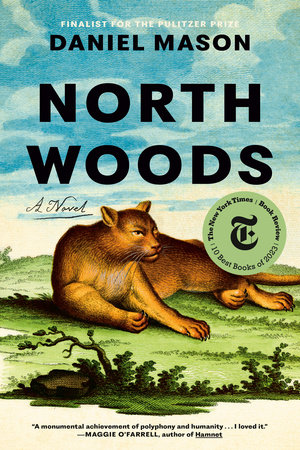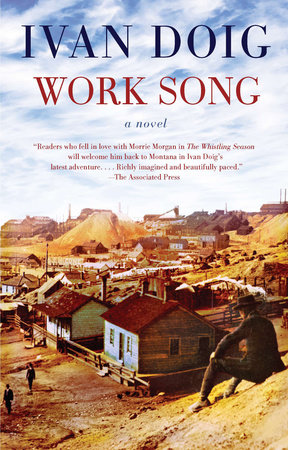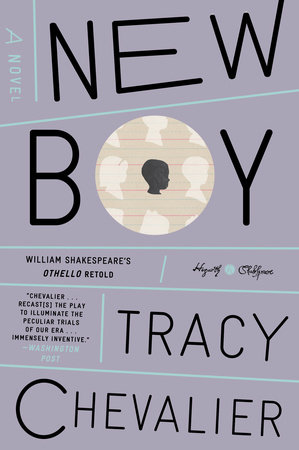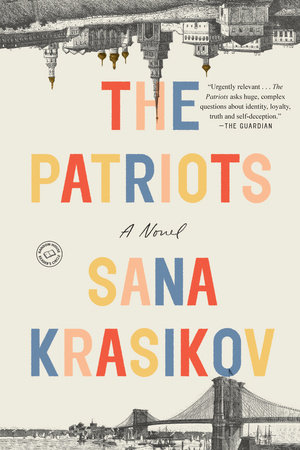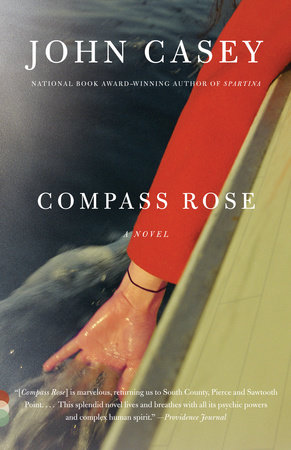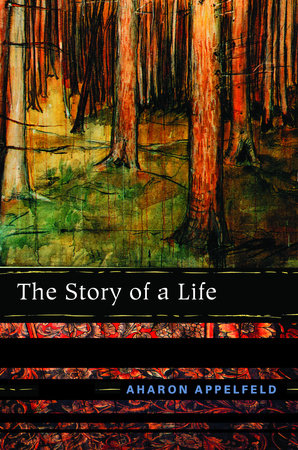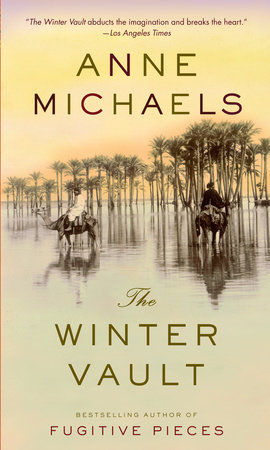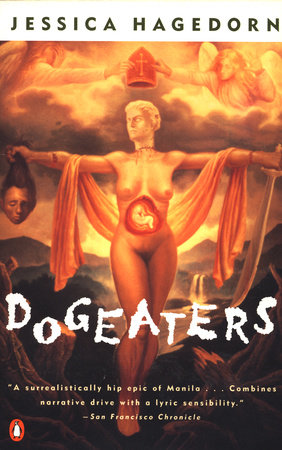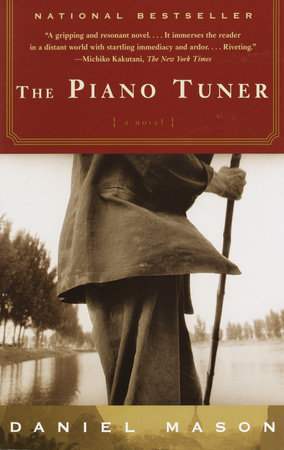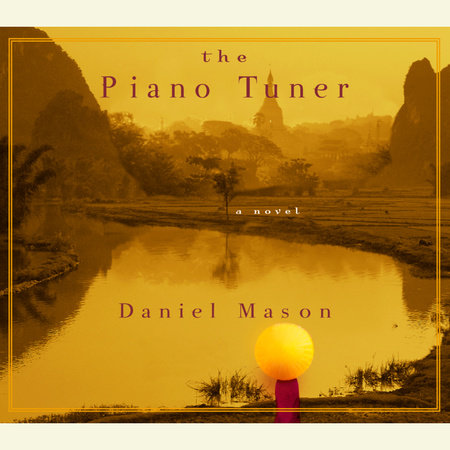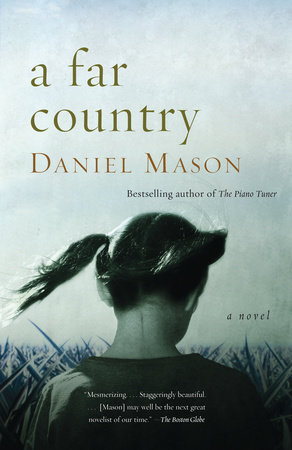Author Q&A
A Conversation with Daniel Mason, author of THE PIANO TUNER
Q: Between college and medical school, you spent a year studying malaria on the Thai-Myanmar border. Why did you decide to make that trip, and what was the experience like?
A: In college, I wrote my senior thesis on mixed-species malaria infections, on what happens when someone is infected with more than one of the four species of parasite that cause human malaria. I was fascinated by the subject—it appears that infections with two species may at times be better than infection with one—but my work was mainly mathematical, and I had never had the opportunity to work in the field. Then not long before I graduated, reports began to come from the Thai-Myanmar border that mixed infections were more common there than previously thought. Soon after, I received a scholarship from the Luce Foundation for a year of research at the Faculty of Tropical Medicine at Mahidol University, in Bangkok, Thailand.
I spent a year in Thailand, splitting my time between the university in Bangkok and our field site in the province of Ranong, along the southern Thai-Myanmar border. There, most of our patients were Burmese migrant workers who had come to Thailand to work in wood mills or fishing boats, or travel to offshore islands to cut wood. The work was extremely interesting; there was a lot of malaria, and because most of the staff was Burmese, I began to learn about Burmese culture, history, medicine. After a year in southeast Asia, I returned to California, for my first year of medical school. Then the next summer I went back to Asia again, this time with a Japanese-Thai project studying malaria in northeastern Burma, specifically the Shan States, where much of The Piano Tuner takes place.
Q: When did you begin THE PIANO TUNER? Had you thought you would work on a novel when you first left for Thailand?
A: I never intended to write a novel when I first went to Thailand. I didn’t even really keep a journal, only jotting ideas down from time to time, things I wanted to remember, but this was on napkins, bus tickets, nothing formal: Thai or Burmese words, brief impressions. I think there was simply too much that was new, that there wasn’t really any time for reflection. It was only when I came back home, and began medical school, that I began to feel the need to write. It was a strange time to write; I would either work in the early hours before classes, or slip books on Burmese history between anatomy and physiology books.
Q: Where did the idea for THE PIANO TUNER come from?
A: The book began with just an image of a piano in the jungle. I wish I remember when I first thought of this, but honestly, I don’t. I was often struck by reports of colonists bringing items from Europe to the colonies, for example there is a story of Frenchman bringing a bathtub to Indochina. Or the opera in Manaus, in Brazil. A piano seemed like a wonderfully complex symbol of colonialism; one can object to many aspects of European colonialism, but the beauty of at least some European music I think is universal. So it began with a piano; I wrote one page of a story about a pianist in Burma, and then decided that a piano tuner was a more interesting character, a person who is called to do a job, and therefore has room to change as a character. Of course, I would have had to have a piano tuner somewhere. It may be a fine to write a piano into the jungles of Burma, but such a piano cannot escape nature, humidity. As I wrote, I became more and more fascinated by piano tuning. While at first I thought of it as a relatively mechanical task, the more I wrote, and the more tuners I interacted with, the more I realized that the act of tuning a piano is really quite sublime. A composer provides a song, a pianist the motor activity, and the piano the mechanics, but a tuner is the one whose work transforms human motives and construction into beautiful sound. The idea of a broken piano is tragic, imagine the beauty in taking a contraption of metal and wood and strings and transforming it into something that can bring us Beethoven.
That is where the ‘story’ part of the novel came from. The general theme of how people are irreparably changed by their experiences came from my own sense of dislocation, loneliness, and disorientation when I returned to the United States after working in such a different place.
Q: You don’t have a musical background. What drew you to using music as an important element in this story, and how did you gain a working knowledge of tuning, composers, etc. More specifically, what led you to chose an 1840 Erard grand, or Bach’s The Well-Tempered Clavier?
A: Once I decided to write about a piano, I was suddenly confronted with the task of choosing what kind of piano, what was wrong with it that needed tuning, and what it would play. The first task was perhaps the easiest. I looked at books on the history of pianos for one I thought was beautiful—it was a visual image of the piano which drove the book, so it would be only fitting that I chose a handsome instrument. After that, it was like the personality part of a beauty contest. Erards were particularly interesting because of their past; Sebastian Erard was a tremendous innovator and technician, and the piano itself has a wonderfully bloody history entwined with the French revolution, which Edgar describes in the book.
As for tuning, I began with old tuning manuals, trying to learn how the instrument would work, what the basic tasks of a tuner are, and what unique things might have gone wrong with ornate 50 year-old instrument in the tropics, in the midst of a rebellion. Later, I had the fortune to share ‘my piano’ with two piano tuners. One, Ben Treuhaft, is a piano tuner in New York, who had actually tuned an 1840 Erard that was once played by Liszt. I remember being in his little piano shop on the Lower East side of Manhattan surrounded by an array of piano parts, while Ben read the manuscript and pointed out to me all my mistakes, some which were due to the uniqueness of an 1840 Erard, others due to my general ignorance. It was a day which makes one realize how wonderful it is to be a writer. Ben and I batted plot and dialogue back and forth, and tried to reconcile both narrative and technical considerations.
My choice of the musical ‘theme’ grew out of my choice of tuning. As is obvious by its name, The Well-Tempered Clavier is a piece that is closely related to the art of tuning a piano; it is a celebration of equal temperament, the tuning technique which allowed Bach to write a piece in all keys that could be played by a single instrument. The more I listened to it, the more enamored of it I became. Now I listen to Bach almost obsessively, especially before I write. Later, after I chose this piece, I would realize how wonderfully the structure of a fugue fit with the book’s pattern of overlapping stories, not to mention the double meaning of the word itself.
Q: Why did you decide to set the story in 19th century Burma and the Shan States?
A: For some time, I thought of setting it in Thailand. I spent most of my time in Thailand, spoke Thai, and was very interested in Thai history. But 19th century British Burma allowed real historical and political tension, while Thailand was never colonized. There were other reasons as well. There are many wonderful accounts of Burma written in English by British officers, administrators, or simply visitors. Also, since I spent so much time on the border, where one could see the wink of pagodas from the mountains across the river, there was always something distant and elusive about Burma. Virtually all of our patients were Burmese, and I was always hearing stories of what it was like. Occasionally we would cross to a small Burmese city famous for its kickboxers, where the immigration office was on little island and you had to jump from the boat to get your passport stamped. But we weren’t allowed farther inland.
Q: What kind of research did you do for the elements of British military history, Burmese history, geography, politics?
A: Researching the Shan Revolt was probably the easiest part of the book: the history is so interesting and colorful, that studying it at times feels like reading a novel (much of it reminded me of adventure stories I used to read, with jungle battles, legends of sorcerers). Surprisingly, I found that some of the most difficult history was actually that which is most well known. For example, it is much easier to learn about the local Shan rebels (for which there are only a handful of sources) than the history of the Raj. Because I found the history so fascinating I felt a certain commitment to it, and tended to be a little obsessive about making the story fit history, dates, etc. I remember at one point going to Lloyd’s List to find a particular ship that Edgar could have left England on, but then knew I would have to follow its every stop, so I chose an imaginary ship instead. This kind of choice came up continually.
As for Burmese geography, I was lucky. I originally was going to set the novel either in the Chin states, in the west, where there was a revolt by a monk named U Ottama, or in amongst the Karenni, another tribe, among whom the name of the warlord Sawlapaw still brings stories of awe. But then I came across the story of the Shan revolts, and specifically, of the bandit chief, Twet Nga Lu, a legendary brigand whose body was said to be imbeded with amulets, and who, when he was killed, was boiled down to make a magical potion. Then, just when I had decided to focus on the Shan States, I was offered the research position in Myanmar that summer, in the Shan States. So by chance, I got to travel within a miles of my imaginary site. Unfortunately, I couldn’t go there. That part of Myanmar lies right in the Golden Triangle where opium production and local insurgency has led the government to cut it off to outsiders. I would love to go there one day, to see if it is like how I imagined it.
Q: Dr. Carroll, the Surgeon-Major who commands the remote fort of Mae Lwin, is the only person capable of maintaining an unsteady peace in the Shan States. Is he, or any of the characters, based on actual historical figures?
A: All of the main characters are fictional. The only true historical characters to appear are some of the Shan princes, and references are made to certain British officers. Twet Nga Lu is the only true character "with a speaking role." One interesting point about Carroll, is that early in writing the book, I relied on several sources by a British officer named James George Scott; both a wonderful ethnography called The Burman, His Life and Notions, as well as some other gazetteers and histories. Only later in the process, when was I introduced to Scotts biography, Scott of the Shan Hills, did I realize how very much he was like Anthony Carroll. He was one of those amazing 19th century breeds of polymath, interested in everything, from linguistics and ethnology to natural history. And compared to other officers, he was very committed to ‘pacifying’ the Shan States with as little bloodshed as possible. So I think that Scott was an unconscious inspiration for Doctor Carroll: I used his writings to create a character, but only later, did I realize how similar the two characters were. It was very wonderful, like meeting an old family member. Scott appears in The Piano Tuner, although never directly. Carroll refers to him as his friend.
One aspect of this mix of history and fiction which I found interesting was to meet people from the areas in my book. Because I did not have the opportunity to travel to that area of the Shan States, this was rare, and so even more exciting. For example, in Rangoon, I met a woman who was the granddaughter of one of the Shan prices. In northern Thailand, I met a waiter from Mongnai, which is one of the most important Shan principalities. I could hardly control my excitement. I think he thought it was a little bizarre I was so interested in Mongnai, but enjoyed talking about his home. It so happened that there was a melodrama on Thai TV at the time about an ancient legend of Mongnai; although it is in Burma, the Thai and the Shan are very similar, and share many moments in history. So we used to go to this little ice cream shop to watch the show together. It was very surreal: it was like a soap opera, but with giants and magicians, and we would sit and watch and eat ice cream at about nine in the morning.
I think that for any author, after spending so much time with your characters, it becomes hard to convince yourself they aren’t real. When I was in London, I remember looking in an old London Directory for the name Edgar Drake. There were several men with that name, and the old directories used to list professions. For a moment, I thought that I would see "piano tuner," and felt my heart race. I didn’t, but I found myself double-checking.
Q: When you are a doctor, do you hope to emulate Carroll?
A: I hope so! Carroll is such an admirable doctor, he is very kind to his patients, he is well-studied, and he is humble in admitting when he doesn’t understand something. I definitely hope to emulate these aspects of his personality, and his commitment to serving in underserved, remote areas. But I am also deeply envious of people like him, who can commit themselves to learning so much about a local area, who can sacrifice so much of their personal life in the pursuit of humanitarian goals. I could never stay in the jungle for so long. It is wonderful, for a time, but I get too homesick.
Q: Story-telling is an important part of THE PIANO TUNER. As Edgar travels from London to Burma, and eventually to Dr. Carroll, he hears many tales along the way. Was this an important element for you? How did you see this interacting with your role as an author?
A: The importance of stories became increasingly fascinating for me throughout the process, and in many ways, now I think the book is really about this more than anything else. Edgar hears other characters’ stories as he travels, and is struck by them, until he slowly realizes how his own journey has begun to take on similar aspects of a tale, so that the book becomes a sort of Russian doll of stories, tales within tales, and the line between fiction and truth gets blurred. I loved the idea that Edgar could have started dreaming at any point in the story, and he wouldn’t know, I wouldn’t know. The stories Edgar hears tend to intertwine themselves with the story he is experiencing, until it becomes difficult to extract himself, to know again what is real and what is his imagination.
Perhaps one reason that I became so entranced by the idea of story-telling is that it is the thing that I share with the characters, all of whom are story-tellers in some way. This includes both characters who literally tell stories, to others whose reflections are ultimately reflections on the story itself. I realized after I wrote it, that when Edgar decides to write a letter to the War Office about the piano, deciding that its ‘absence was an obvious omission in the narrative thus far,’ this is not only a criticism of the War Office (who he feels care too little about the instrument) but in a way of me, the author, for not discussing the piano as much as he probably would have wanted.
Although this wasn’t obvious to me when I started writing, the ambiguous lines of truth and fiction, between author and story, fit wonderfully with the concept of tuning a piano. At one point Edgar recalls a teacher who told him that in all pianos lie a song, and it is a tuners job to liberate it. The implication for literature is that stories exist as entities greater than the author, who is only a medium for them to escape, enabling pen and paper to express a story, as a tuner enables wood and string to express music.
Q: One can sense certain literary influences—Dante and Homer with regards to theme,Conrad to setting. Are there certain books or writers that have been important influences on your work?
A: I think that I am definitely influenced by other writers; I think that the best way to learn to write is to read. I think that in no other art form can you learn so well from the work itself as in writing. It is impossible to know how a sculpture came to be, or how one dances well, or how to paint. But everything is there in writing. We know exactly how, for example, Faulkner can create such a sense of fear because it is all there, on the pages. I owe so much to other writers as my teachers.
The authors that you mention are fascinating, because I think it is impossible for a writer not to be influenced by them. The Odyssey is such a fundamental story that I think that any story about a journey would seem to come from it in that it is so elemental. This said, I do feel directly influenced by it as well. I love the story, on so many levels, but mostly as an adventure story, in the same way that I first read it in my illustrated D’Aullerie’s Book of Greek Myths as a child. Maybe this sounds simplistic. But in college I took a course on it, and I remember that despite all of the analysis, I couldn’t escape the fact that it was just a great tale. And so when everyone discussed all of the complex reasons for Odysseus not reaching home, I remember just thinking: He doesn’t want to; I don’t want him to; When he gets home the adventure ends. This comes up in my book very often, and Dr. Carroll articulates it better than I. If my character’s story is that of a journey, there is an always an element of him not wanting it to end but knowing it must, a conflict which I think has wrenching consequences. Of course, I wasn’t the only one to read The Odyssey in this way (although I think that as a college freshman, I was probably convinced I was); one finds this reading in poems by Dante and Tennyson.
Conrad is also an interesting reference. Yes, I was influenced by Heart of Darkness, but this is only because it so wonderfully articulates such a deeply universal theme, the voyage into the wilderness. My book is not based on it, as say, Apocalypse Now is; Carroll is not Kurtz. But I think it comes from the same place as that book, the same imagining about what it is like to travel upriver and into the unknown.
Q: How have you managed to balance writing this book during medical school?
A: I really think I probably never would have written this book if I hadn’t been in medical school. In some ways, there was a thrill to writing, in the sense that I wasn’t supposed to be doing it. This is not to say my medical school wasn’t supportive; some of the most warmth and encouragement I have received has come from people at school who have gone out of their way to help me write and study at the same time. This has been so important because my greatest fear is that writing would interfere with medicine, which I love. I really think that the two professions are wonderfully complementary. It is very hard, as a twenty-six year-old male med student, to imagine what characters who are not twenty-six year-old med students would do and think. But being able to talk to so many patients from so many walks of life gives a tremendous window into people’s lives. This is not to say I want to write about individual patients, but I think that after listening to the concerns of people who are so different from me, I can more realistically portray characters who are so different from me.
There are other reasons I think that medical school helped me write. While medicine creates material for writing, perhaps even more important is that it also creates a psychological and emotional need to write. When I first came to medical school, I suddenly had to confront issues of death and disease and healing on a level which I could have never prepared for. And because students know so little, there is very little we can do, which can be extremely sad and frustrating. So writing was a way to process some of what I was seeing. There are many things you see while training to be a doctor that can change you, in bad and good ways. Writing was a way of trying to understand these experiences.
Q: What is next for you?
A: Another piece of fiction set within history, this one taking place in Brazil. I have begun researching, and have written some, but am far from done.
